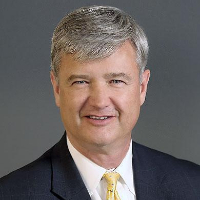Saint Charles Misdemeanor Lawyers, Illinois
Sponsored Law Firm
-
 x
x

Click For More Info:
-
LaPapa Law Group
10704 S Western Ave Chicago, IL 60643» view mapAccident & Injury Law, Criminal Defense Changing Lives One Case At A Time
At LaPapa Law Group, we understand that life doesn’t always go as planned. We have the knowledge and experience needed to competently represent you in court.
800-694-2681
Sponsored Lawyers
1-9 of 9 matches
Criminal, DUI-DWI, Felony, Misdemeanor, Juvenile Law
In law school, David commenced his legal experience as a law clerk in the elite Homicide Task Force of the Cook County Public Defender’s Office, where he learned trial skills from Assistant Public Defender Marijane Placek, an attorney whose legendary exploits in Chicago criminal courtrooms had been made into two books. Later, as a third-year law student, David argued motions and assisted with trials as a Rule 711 licensed law clerk in the felony division of the Public Defender’s Office. David also served as a law clerk in Chicago-Kent’s in-house legal clinic and was awarded the 2014 Fleischman Family Award for Excellence in Criminal Clinic for his zealous advocacy on behalf of the clinic’s clients.
(more)Criminal, DUI-DWI, Expungement, Misdemeanor
For over 35 years, the experienced legal team at Mitchell S. Sexner & Associates LLC has helped our clients achieve successful conclusions during difficult times. Our compassionate and knowledgeable attorneys are ready to assist you 24 hours a day. Call us know to discuss your situation free of charge.
(more)Criminal, DUI-DWI, Traffic, Felony, Misdemeanor
The Law Offices of Scott F. Anderson provides criminal defense representation throughout Cook County, Lake County, McHenry County and DuPage County. With over 23 years of experience practicing criminal law both as a prosecutor and now as a criminal defense attorney, Scott Anderson knows what most people are up against when they are charged and arrested for a crime. Scott F. Anderson practices experienced criminal defense in the follow matters: DUI Felony DUI Multiple DUI Violent Crimes Sex Crimes Theft Crimes Drug Crimes All Felonies and Misdemeanors All Traffic Violations Suspended Driver’s License Driver’s License Reinstatement Expungement
(more)


 Gregory R. LaPapa Chicago, IL
Gregory R. LaPapa Chicago, IL Practice AreasExpertise
Practice AreasExpertise



